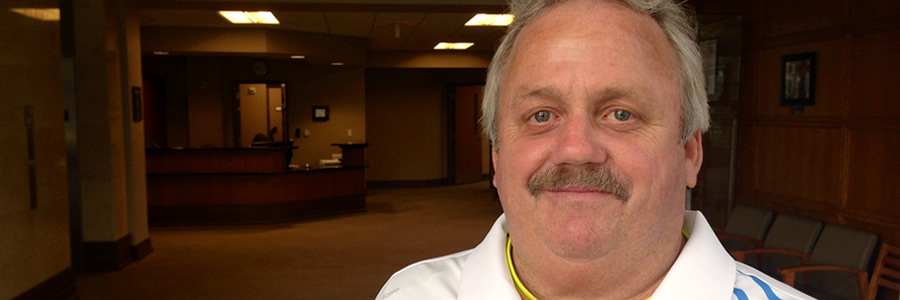Research gives hope to diabetes community

Robby Huey's life today is much different than it was five years ago. Today, he is active, involved in the community and full of energy. Back then, he was struggling to manage his diabetes, tired and often frustrated.
"It was a life changing event to be diagnosed with diabetes. At first I was in denial," said Huey.
In 2010, Huey was experiencing weight gain, an all-encompassing lethargy and he was unsure where to turn for help. When he retired from his full-time job in warehousing and purchasing with the City of Baton Rouge last April, he decided to volunteer for a research study at LSU's Pennington Biomedical Research Center.
Huey was screened for diabetes at Baton Rouge's Life After 50 Expo, where he found out his blood sugar levels were out of control.
"That was really a wakeup call for me – almost like God trying to tell me to slow down and stay awake for the ride," said Huey.
Huey had always seen opportunities for research advertised on Pennington Biomedical' s billboard on Perkins Road, but had never taken the steps to join a research study . The wakeup call from his doctor was the catalyst he needed to make the call to Pennington Biomedical to learn more about improving his health.
After talking with study recruiters at Pennington Biomedical, Huey found a perfect fit as a volunteer for the GRADE Study. GRADE is looking to find the best combination of medicine to maintain normal glucose levels in people with diabetes. The study's goal is to find which of four FDA-approved medications works best with metformin (the most common diabetes medication) to manage blood sugar.
After joining the study, Huey saw quick and positive results. His A1C levels (a measure of a person's average level of blood sugar over the past three months) returned to a normal range, something he describes as astounding.
"It was great news! My doctor was very excited and encouraged by the progress I'd made in the study, and she gave me the thumbs up to keep going with it," said Huey, who notes that he has learned how to better incorporate exercise and a balanced diet into his daily routine by working with Pennington Biomedical's health experts.
"Life is a balance, and being part of Pennington Biomedical's GRADE study, for me, is a part of that balance, without question," said Huey. "In November, we often think about being grateful, and I really am thankful for my good health and that Pennington Biomedical cared enough to help me get there."
November is American Diabetes Month, a great reminder to talk with your doctor about factors that may increase your risk for the disease, including:
- A family history of the disease, especially those with a parent or sibling who has been diagnosed with diabetes
- Being overweight or obese
- High blood pressure or high cholesterol
- A lack of physical activity
- Those who are age 45 and older
- Having had gestational diabetes
- Being diagnosed with polycystic ovary syndrome
- A history of heart disease
- Being of African American, Alaskan Native, American Indian, Asian America, Hispanic or Latino, or Pacific Islander American descent
In Louisiana, 1 in 10 people have diabetes and 1 in 3 people have pre-diabetes, a condition that could lead to diabetes if left unchecked.
Huey regularly encourages his friends and neighbors to talk to their doctor about diabetes and to see if they qualify for a research studies at Pennington Biomedical.
"I would just say don't be afraid to give it a try! I've seen the positive results, and down the road, your contribution and volunteering your time could help someone else like your kids or grandkids live better, healthier lives," said Huey.
For more information about the GRADE Study or other research studies, go to www.pbrc.edu/healthierLA or call 225-763-3000.
For more information on how you can support this and other projects at LSU’s Pennington Biomedical Research Center, visit www.pbrf.org.


